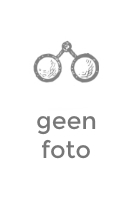The Language of Twentieth-Century Art. A Conceptual History - CROWTHER, Paul

KORTE INHOUD
Recent theory has tended to understand the meaning of art primarily as a function of original contexts of production and reception or in its relation to fashionable notions of gender, multiculturalism, and "scopic regimes." These approaches, however, fail to negotiate adequately art’s transhistorical and transcultural significance, a shortcoming that is particularly serious in relation to twentieth-century works because it confines their significance to contexts that are regulated by the specialist interests of a narrow managerial class of curators, critics, and historians. In this important book, Paul Crowther provides a radical reinterpretation of key phases and figures in twentieth-century art, focusing on the way artists and critics negotiate philosophically significant ideas. Crowther begins by discussing how and why form is significant. Using Derrida’s notion of "iterability" - a sign’s capacity to be used across different contexts - he links this possibility to key reciprocal cognitive relations that ...
1997zie alle details...
Categorie
Exclusief te koop bij deze verkoper

Stel vraag Boek
In-8°, XI, 252 pp. Illustrations. Cloth binding and dust jacket. New copy. [Categorie: Art|geschiedenis|Illustrated books]

